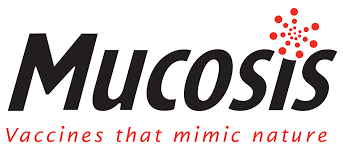Mucosis initiates FiH study of SynGEM, a needle-free nasal spray RSV vaccine

Research has shown that boosting immunity in the nose and lungs may be the best way of increasing defence against RSV.
Mucosis has announced the start of a first-in-human study of its intranasal Respiratory Syncytial Virus (RSV) vaccine candidate, SynGEM, at Imperial College London’s Clinical Research Facility.
The first trial will recruit 48 healthy adults (36 vaccinated, 12 placebo) to assess the safety and immunogenicity of a prime-boost regime of two different intranasal doses of SynGEM, in a randomised, double-blind Phase I study. Phase I is completed at day 180 post prime vaccine administration, with interim data readout expected in the first half of 2017. Phase II, due to start mid-2017, will recruit 108 adults (54 vaccinated, 54 placebo).
SynGEM is based on a unique prefusion version of the F subunit of RSV, shown to raise more potent serum neutralizing antibodies against RSV compared with the postfusion F antigen approach others have used. Delivered via the mucous membranes in the nose, the Mucosis vaccine candidate is also able to recruit antibodies produced in the mucosal linings of the body, with the potential to effectively stop the virus from entering the body via the mucosal pathways, where over 90% of pathogens enter the body. SynGEM is based on Mucosis’ patented Mimopath technology, which uses bacterium-like particles (BLP) derived from food-grade bacteria, to deliver the antigen in a more natural conformation and boost the body’s immune response to the virus.
Professor Peter Openshaw, Professor of Experimental Medicine at Imperial College London and Physician in the Department of Respiratory Medicine at Imperial College Healthcare NHS Trust, said: “We are delighted to work with Mucosis on SynGEM, a needle-free nasal spray vaccine that is designed to raise not only systemic but also mucosal immunity at the site of entry of the virus. We will first test whether the vaccine induces the right sort of immunity in humans, and, if it does, then test whether it will prevent infection in adult volunteers. Previous research has shown that boosting immunity in the nose and lungs may be the best way of increasing defence against RSV, blocking the virus from gaining entry to the body.”
“The start of this first-in-human study marks an important milestone in our progress towards a needle-free vaccine for prevention of RSV, a global health threat for which there is still no vaccine” said Tom Johnston, CEO of Mucosis. “We are pleased to be working with the support of the Wellcome Trust and a world-renowned university for this next step in the program, enabling us to take advantage of leading experts in the RSV field, and dedicated respiratory facilities. This second human trial of our Mimopath platform builds on the successful proof of concept trial in influenza in 2012.”
The Wellcome Trust awarded Mucosis with a €3.44 million (£2.77 million) translational fund earlier in the year to progress SynGEM into Phase I and IIa human clinical trials. On completion of the phase I study, a phase IIa study will involve a live viral challenge to assess the efficacy of SynGEM against RSV.
Related News
-
News BioNTech to begin mRNA vaccine manufacturing in Rwanda by 2025
German biotechnology company BioNTech has stated their intentions to begin production at their mRNA vaccine factory in Rwanda by 2025, which will mark the first foreign mRNA vaccine manufacturing site on the continent of Africa. -
News Identifying Alzheimer’s Disease biomarker proteins with whole blood tests
A University of Manchester spin-out pharmaceutical company, PharmaKure, has reported successful study results for the quantification of Alzheimer’s Disease biomarker proteins with a whole blood test. -
News Bill & Melinda Gates Foundation to boost mRNA vaccine initiatives in Africa with USD $40m
To address vaccine inequality and accessibility issues, the Bill & Melinda Gates Foundation aims to deliver USD $40m to various biotech companies and vaccine manufacturers in support of mRNA vaccine development. -
News CPHI Podcast Series: Exploring neurological frontiers in Alzheimer's and beyond
The next episode of the CPHI Podcast Series delves into the science and background behind some recent developments in the field of Alzheimer's disease and neurological disorders. -
News Is patient centricity the future of pharmaceutical manufacturing?
In this interview with Sandra Sánchez y Oldenhage, President of PharmAdvice, she speaks to the importance of considering patients in the manufacturing stages of the pharmaceutical supply chain, and how it can redefine healthcare. -
News CPHI Podcast Series: How to leverage AI for Drug Discovery
Artificial intelligence is the topic of debate in the latest episode from the CPHI Podcast Series, where Digital Editor Lucy Chard speaks with Bill Whitford of DPS Group about the integration of AI in healthcare. -
News Pfizer forges ahead with blood cancer therapy after approval from FDA
Pfizer gains accelerated approval from the US FDA for their new bispecific antibody therapy for multiple myeloma, set to address an unmet need for patients. -
News Alzheimer's drug donanemab deemed effective in landmark clinical trial
Results from the TRAILBLAZER-ALZ 2 Randomised Clinical Trial into the use of donanemab to treat early symptoms of Alzheimer’s disease have been analysed.
Position your company at the heart of the global Pharma industry with a CPHI Online membership
-
Your products and solutions visible to thousands of visitors within the largest Pharma marketplace
-
Generate high-quality, engaged leads for your business, all year round
-
Promote your business as the industry’s thought-leader by hosting your reports, brochures and videos within your profile
-
Your company’s profile boosted at all participating CPHI events
-
An easy-to-use platform with a detailed dashboard showing your leads and performance







